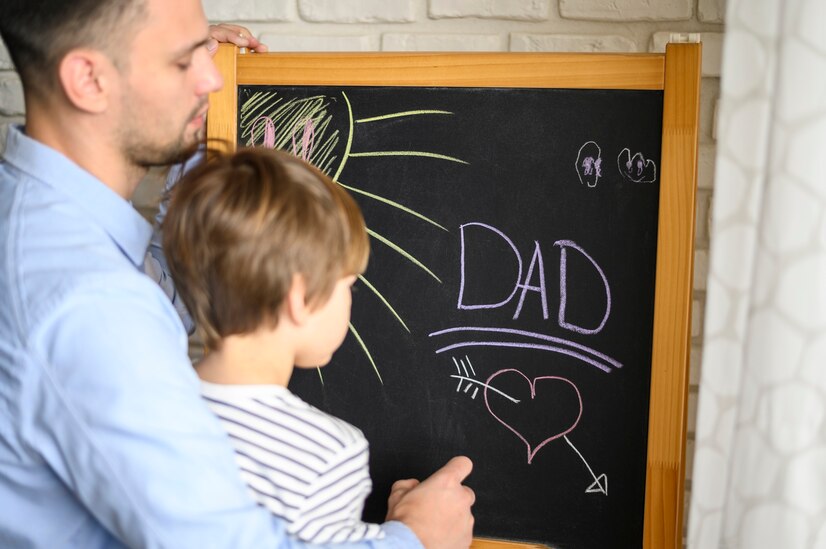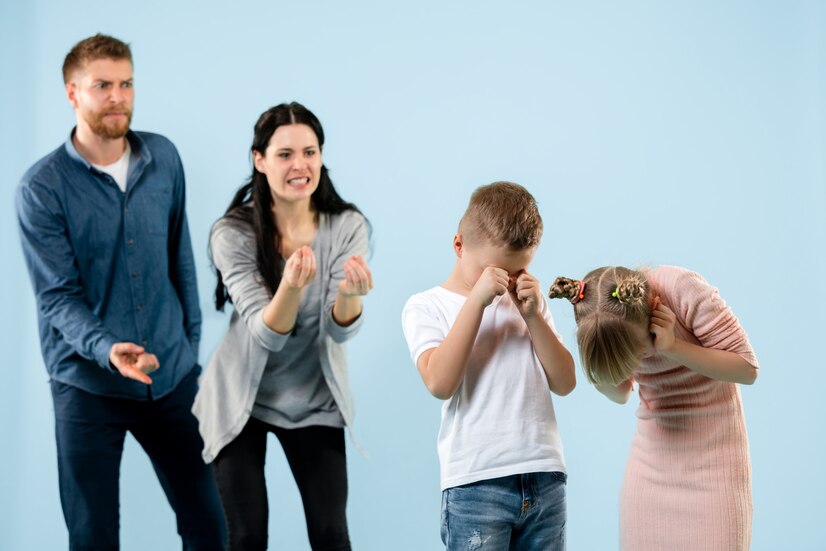As parents, it’s natural to feel frustrated when our kids misbehave. The temptation to resort to punishing kids as a way to control their actions is strong, especially when emotions run high. But is punishing kids really the best approach? More and more parenting experts agree that teaching growth through logical consequences is a more effective and compassionate strategy for shaping behavior.
This article explores the difference between punishing kids and teaching growth, offering actionable advice on how logical consequences can foster better behavior, responsibility, and self-discipline.
Why Punishing Kids Doesn’t Always Work
Punishment, in its traditional form, often focuses on making children feel bad for their mistakes or misbehavior. The goal is usually compliance through fear or discomfort, but this approach can have unintended consequences. Here’s why punishing kids often fails to produce lasting results:
- Punishment Teaches Fear, Not Growth
When children are punished, they may become fearful of their parents rather than learning why their actions were wrong. They may avoid certain behaviors out of fear of the consequences, but this doesn’t necessarily lead to better decision-making in the future. Instead, it fosters resentment, fear, or sneaky behavior. - It Damages Parent-Child Relationships
Regularly punishing kids can create a disconnect between parents and children. Kids might feel misunderstood or unloved, which can strain the bond that’s so essential for healthy development. Punishment can lead to feelings of rejection, and this emotional gap can make it harder for parents to influence their child’s behavior in the long run. - Punishment Focuses on the Past, Not the Future
When you punish, the focus is on past misbehavior rather than on what the child can do differently next time. This backward-looking approach limits opportunities for teaching growth and forward-thinking, making it harder for kids to learn from their mistakes. - It Doesn’t Teach Responsibility
Punishing kids doesn’t teach them why their behavior was problematic or how to take responsibility for their actions. Children need to understand the impact of their choices and learn how to make better ones in the future. Punishment alone rarely fosters this understanding.
The Power of Teaching Growth Through Logical Consequences
Logical consequences are a natural way of teaching kids about cause and effect without resorting to punishing kids. They show children how their actions directly lead to certain outcomes, which encourages them to think more critically about their behavior. Here’s why logical consequences work:
- Encourages Accountability
When children experience logical consequences, they’re faced with the natural results of their actions. For example, if a child refuses to wear a coat on a chilly day, they’ll feel cold. This natural consequence helps them connect the dots between their choices and the outcomes, promoting accountability. - Fosters Problem-Solving
Logical consequences invite children to think through their actions and problem-solve. If a child draws on the wall, the logical consequence might be cleaning it up. This approach teaches them that making a mess has real-life consequences, and they are responsible for fixing it. - Strengthens Parent-Child Relationships
Unlike punishing kids, logical consequences aren’t about power or control. They’re about helping your child learn from their mistakes. This supportive approach can strengthen your relationship with your child because it’s based on mutual respect rather than fear or anger. - Builds Self-Discipline
Logical consequences help children develop self-discipline. Instead of being told what to do through punishment, they learn to make better decisions on their own. Over time, this leads to a deeper understanding of right and wrong, and better behavior becomes self-motivated.
How to Implement Logical Consequences: Practical Tips for Parents

If you’re ready to move away from punishing kids and focus on teaching growth through logical consequences, here are some expert strategies to help you get started:
1. Stay Calm and Consistent
Logical consequences work best when delivered calmly. It can be challenging to keep emotions in check, especially when you’re frustrated, but staying calm ensures that the consequence feels fair and instructional rather than punitive. Consistency is also key—make sure the same consequence follows the same action every time.
2. Match the Consequence to the Behavior
The consequence should be directly related to the child’s behavior. For example, if they refuse to clean up their toys, the logical consequence could be not being able to play with them until they clean up. The consequence needs to feel relevant, or it won’t resonate with your child in a meaningful way, unlike punishing kids.
3. Make Consequences Age-Appropriate
Logical consequences need to be developmentally appropriate. Young children might need simpler, more immediate consequences, like not being able to play with a toy after throwing it. Older kids can handle more complex consequences, like being responsible for fixing something they’ve broken. This works much better than simply punishing kids, as it tailors the lesson to their age and understanding.
4. Give Your Child Time to Reflect
After a consequence, give your child some time to reflect on what happened. Ask gentle questions like, “What could you do differently next time?” This helps them internalize the lesson and encourages self-reflection rather than focusing on external punishment, which is often the focus when punishing kids.
5. Allow Natural Consequences When Safe
Sometimes, the best consequence is the natural one. If a child insists on playing outside without a jacket, allowing them to feel cold can be more effective than forcing them to comply. As long as the consequence isn’t harmful, natural outcomes can be powerful teaching tools. In contrast to punishing kids, natural consequences are lessons taught by life itself, not imposed by the parent.
6. Avoid Consequences That Feel Like Punishment
While logical consequences are meant to teach, they shouldn’t feel like punishment in disguise. If your child sees the consequence as unfair or unrelated to their behavior, it can have the same negative effects as traditional punishment. Ensure that the consequence is logical, not just a punishment under a different name, which is a common pitfall when punishing kids.
Balancing Empathy with Discipline: Emotional Challenges for Parents
Let’s face it—parenting is emotionally tough, especially when you feel like your child isn’t listening. Shifting from punishing kids to focusing on logical consequences requires patience and empathy. Here are some emotional challenges you might face and how to overcome them:
Frustration and Anger
It’s completely normal to feel frustrated when your child misbehaves, and punishing kids may seem like a quick fix. But remember, logical consequences are about long-term growth. When you’re angry, take a moment to breathe and collect yourself before responding. This pause will help you approach the situation with calmness and clarity, reducing the likelihood of reacting impulsively.
Fear of Losing Control
Many parents fear that if they stop punishing kids, they’ll lose control of the situation. It’s important to remember that teaching through consequences is not about letting children off the hook—it’s about guiding them toward better choices. Trust that consistent, clear consequences will lead to better behavior over time, even if it feels slow at first.
Guilt Over Not Punishing
Some parents worry that not punishing kids makes them too lenient. It’s easy to fall into the trap of thinking punishment equals good parenting. However, logical consequences provide a balanced way to discipline while teaching growth. Let go of the guilt, and trust that you’re teaching your child valuable life lessons.
Staying Consistent
It can be hard to consistently apply logical consequences, especially when life gets busy. But consistency is key to making this approach work. If you sometimes let misbehavior slide, or other times punish harshly, your child won’t learn from the consequences. Make consistency a priority, and you’ll see better results than simply punishing kids.
When Punishing Kids Might Be Necessary
While logical consequences are a more constructive approach, there may be times when immediate safety or extreme behavior requires firmer discipline. In situations where a child’s actions are dangerous to themselves or others, you may need to intervene quickly. However, even in these cases, it’s important to follow up with a conversation about what happened and how to make safer, better choices in the future. Punishing kids in these rare instances should be focused on immediate safety rather than general behavior correction.
To Sum Up: Shifting From Punishing Kids to Teaching Growth
Parenting is one of the most challenging roles we take on, and it’s easy to resort to punishing kids when they push boundaries. But teaching growth through logical consequences offers a more compassionate, effective approach to shaping behavior. By fostering accountability, problem-solving, and self-discipline, this method helps children learn from their mistakes while preserving the parent-child bond.
Remember, it’s not about controlling your child but helping them develop the tools they need to make better choices. With patience, empathy, and consistency, you can guide your child toward positive growth and lasting change, without the need for repeatedly punishing kids.

FAQs
- Why should I stop punishing kids?
Punishment often instills fear rather than teaching valuable lessons, and it can damage your relationship with your child. Logical consequences, on the other hand, help children learn responsibility and critical thinking. - What are logical consequences?
Logical consequences are directly related to a child’s behavior, showing them how their actions lead to certain outcomes. They help kids understand the cause-and-effect nature of their choices. - Can I still discipline without punishing kids?
Yes! Discipline is about teaching, not punishment. You can use logical consequences to guide your child toward better behavior without resorting to punishment. - What’s the difference between natural and logical consequences?
Natural consequences happen without parental intervention (e.g., feeling cold without a jacket), while logical consequences are set by parents and directly related to the child’s behavior (e.g., cleaning up after drawing on the wall). - How do I avoid using punishment when I’m angry?
It helps to take a few deep breaths and step away for a moment. Once you’re calm, you can approach the situation with a clear mind and apply logical consequences rather than reacting emotionally. - Will my child respect me if I don’t punish them?
Absolutely! Children respect parents who are firm but fair. Logical consequences build mutual respect and teach kids that they are responsible for their actions.
Read Also: First Year at Nursery: Practical Tips for Handling Sickness and Getting Prepared
Follow us
